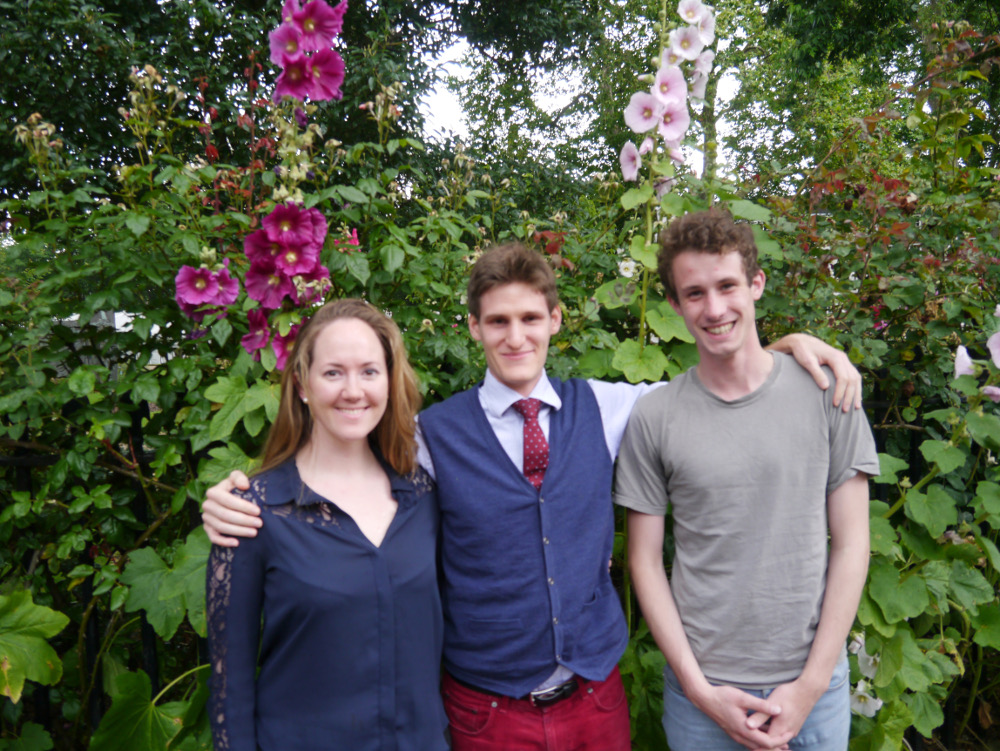Named winner of the prize for ‘International Collaboration of the Year’ at City’s Vice-Chancellor’s Awards 2016, Senior Lecturer Nikki Walsh tells us more about the exciting project she got off the ground and the students she recruited.
What inspired you to kickstart this project?
I interned for Reprieve’s Director, Clive Stafford Smith in the USA’s Deep South when I was myself a law student back in the 1990s. When Clive set up Reprieve in London I worked with him again on Guantanamo Bay cases, and when I heard that Pakistan had resumed executions and that Reprieve was linking in with that I dropped him a line. I knew, from having worked myself with death row attorneys in New Orleans and Texas, that smart Bar students are a great resource for organizations like Reprieve, and that for law students access to this kind of work is unparalled. In September 2015, I selected Alex, Tom and Zara as my research team.
What stood out about Alex, Tom and Zara?

First and foremost, brains. I needed three very clever students, as this is creative and strategic litigation, but who could think outside the box a bit; as we were trying to support potential test cases the answers, by definition, were not going to be found in mainstream sources or in a textbook. I also chose them as they were clearly committed to the work, sometimes sacrificing their weekends to meet the deadlines. And, finally, they needed to be unfailingly reliable, as there is a lot at stake if they didn’t deliver. Alex, Zara and Tom individually, as well as a team, not only met my expectations, but exceeded them. I am extremely proud of the effort they put in. Tom said it was “the highlight of the BPTC” for him, which was praise indeed.
How did the process work in terms of task allocation from the lawyers in the US and Pakistan?
I dealt with the lawyers at Reprieve and Justice Project Pakistan directly who chose the terms of reference for research, which I then allocated this on to Alex, Tom and Zara. The first project was an international comparative study into the legal protocols for implementing a death warrant; the second project revolved around double punishment, again, as a cross- jurisdictional comparison. Alex, Tom and Zara took it in turns to lead these projects, split the work and report back to me (often under harsh deadlines!). The first report had to be completed in a matter of weeks of the project commencing. Their level of organization was phenomenal.
Is there scope for the project to develop in the future?

Yes, the project will run again this year with a fresh intake of Bar students. It has to stay small in order for me to supervise it effectively, and it will remain highly selective, as this is not your average pro bono project. However, I was overwhelmed by the huge number of expressions of interest I received from across the University subsequent to the award for Best International Collaboration. I now need to see what I can do to ensure as many students and staff as possible can get involved in this important area of work. So watch this space!
We wanted to find out more about the students involved – how did they cope with the project on top of a demanding BPTC, and how have the issues involved impacted on them personally and professionally….Here’s what they had to say!
How difficult was it to juggle your studies and this work?
AB: It wasn’t hard at all, in the first half of the year (pre-Christmas), because Nikki devolved a great deal of flexibility to us in terms of how to break the workload up, allocate it amongst the team, and complete it. In the second half of the year we completed our largest, second, report during exam revision period. This required excellent revision management, to be able to free up time and head space for the project.
What different skills have you gained/ developed and how have you felt your approach has changed over the period of the project?
ZM: I think I’d agree that one of the key skills we all developed was that of research. Unlike doing the GDL or the BPTC, this was something of a step into the unknown – we didn’t really know at first what resources were available and how useful those resources might be. I think for me personally it was also valuable to realise that actually if you’re really stuck, there’s nothing wrong with getting in touch with a practitioner! As something of a last resort, I emailed a barrister and this proved to be very helpful. I think that that exchange has probably given me the confidence to do that a bit sooner in future.
TB: Having studied the one-year conversion course (the GDL), the opportunity to spend a number of weeks researching a single area of law is new and valuable. My approach was pretty consistent – there are only so many ways to read a 300-page judgment of the Supreme Court of India.
Standout moment?
AB: Definitely completing the first report. We were up against the clock for a morning deadline, and so decided to make a night of it. We maintained a conversation on facebook chat, whilst all having simultaneous access to the final draft, which we weaved in and out of editing, fact checking, referencing, etc. I was up until about 4 in the morning, but when we finally finished it the sense of achievement was immense. One of the most satisfying pieces of work I had ever done!
TB: Reading about the people on death row to whom our research related was striking. The study of law is inevitably removed from the people affected by it, and this project provided an enthusing contrast to that.
How much support did you receive whilst working on the project?
ZM: I think that most of the support came from within the group – we all wanted to do a good job, and we all wanted to do that collaboratively, so maintaining contact and discussing what we were doing on a regular basis was great.
Nikki was wonderful in that she let us get on with it, without hovering over us, but at the same time made it clear that if we needed anything, we only had to call on her
Biggest eye-opener?
TB: In the UK we assume that what the law says largely reflects what happens. It was an eye-opener to investigate countries in which the rule of law is less well-established, where the law in practice has little to do with that it says on paper.
AB: I was struck most of all by the uselessness of many legal remedies to most people on death row in the middle east. At the very least, the kind of strategies which benefitted them most required collateral legal strategies, often targeting procedural rather than substantive law, and often in concert with strong media campaigns, to achieve any positive result.
What’s next for you?
ZM: I’ll be starting pupillage in October at a commercial chancery set – so quite a change from this type of work! However, I am hoping to maintain my interest in public law through involvement in pro bono activities (where possible), attending events, and just trying to maintain my awareness.
AB: I’m looking to practice a mixture of criminal, public, and human rights law, and I’m seeking pupillage to that effect. However I’m increasingly open to working with NGOs or other bodies involved with the issues that interest me. If I can fund a human rights MA, then I’m keen to do so.
TB: In preparation for applying for pupillage, I do a fair bit of immigration- and asylum-related pro bono work. Next year I’ll be in America working on migration issues in the third sector.
Thanks to Nikki and the three students involved, Alex Bennie, Tom Beamont and Zara McGlone for sparing the time to talk to Lawbore about this inspiring project. Alex, Tom and Zara all completed both their GDL and BPTC at the City Law School.


